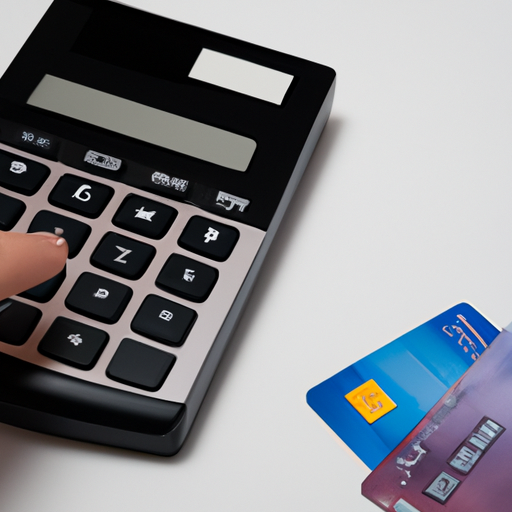What to Consider Before Applying for a Credit Card
When it comes to choosing the right credit card for your lifestyle and spending habits, there are many factors to consider before applying. Knowing your financial goals and understanding how credit cards work are essential steps in finding the right card for you. Here are some key points to consider before applying for a credit card.
First, determine your financial goals. Ask yourself what you need from a credit card. Do you need to build your credit, earn rewards, or have a low interest rate? Knowing your financial goals makes it easier to find a card that fits your needs.
Second, review your spending habits. Take an honest look at how you use credit. Do you have a large purchase coming up that you’ll use the card for? Consider whether you will be able to pay off the balance each month and if the card offers rewards or other benefits that are beneficial to you.
Third, compare the different cards available. Research the various cards available and consider the features and benefits offered. Is there an annual fee? Does the card offer rewards or other perks? Are there any special offers or promotions?
Fourth, read the cardholder agreement. Make sure you understand the terms and conditions of the card before signing up. Review the fees, interest rates, and other features carefully. Be sure to ask questions if you are unsure about any terms.
Fifth, consider your credit score. Your credit score will determine which cards you are eligible for and the terms you’ll receive. A higher credit score will give you access to more cards and better terms.
Sixth, look for a card with fraud protection. It’s important to choose a card that offers fraud protection. This will help protect you from unauthorized charges and help you resolve any disputes that may arise.
Finally, be aware of the fine print. Read all the fine print before signing up for a credit card. Make sure you understand all the terms, conditions, and fees associated with the card.
Choosing the right credit card for your lifestyle and spending habits doesn’t have to be a daunting task. If you take the time to consider all the factors and read the fine print, you can find a card that best fits your needs. With the right card, you can save money, earn rewards, and build your credit.

Understanding Your Credit Score and Credit History
Choosing the right credit card for your lifestyle and spending habits is not only a wise financial decision, but it can also be an empowering choice. Before you make a decision, it’s important to understand your credit score and credit history. Knowing your credit score and credit history can help you make the most informed decision and take charge of your financial future.
Your credit score is an important number that lenders use to determine your creditworthiness. It’s based on your payment history, credit utilization, length of credit history, types of credit in use, and public records or collections. Credit scores range from 300 to 850 and the higher the score, the better. If your score is lower than 700, you may have difficulty qualifying for the best credit cards with the most favorable terms.
Your credit history is a detailed report of your credit accounts, including credit cards, loans, and other credit accounts. Your credit history is created by reporting agencies, such as Experian and TransUnion, which collect information about your credit behavior.
It’s important to review your credit report regularly to make sure that the information is accurate. You can get a free copy of your report from each of the three credit bureaus every year. This will help you identify any discrepancies and take the necessary steps to address them.
Your credit score and credit history can help you assess your creditworthiness and determine which credit cards make the most sense for your lifestyle and spending habits. Consider factors such as annual fees, interest rates, rewards programs, and other benefits. You may also want to look at the credit limits and whether you need a secured or unsecured card.
It’s also wise to compare different credit cards before making a decision. Consider the benefits and drawbacks of each card and make a list of the features that are most important to you. This will help you make an informed decision and choose the right credit card that meets your needs.
Finally, it’s important to remember that the credit card you choose should help you achieve your financial goals. Don’t be tempted by flashy rewards or low introductory rates. Make sure the card you choose is the right fit for your lifestyle and spending habits.
Understanding your credit score and credit history is an essential step in choosing the right credit card for your lifestyle and spending habits. Taking the time to review your credit report and compare different credit cards can help you make the most informed decision and take charge of your financial future.

Choosing the Right Credit Card for Your Needs
Choosing the right credit card for your needs is an important decision and one that should not be taken lightly. After all, the credit card that you choose will likely determine the type of rewards and benefits you get from your credit card provider. So it’s essential to take the time to compare different credit cards and make sure that you select the one that best suits your lifestyle and spending habits.
First and foremost, consider your budget. Before you even start looking at credit cards, you should have a clear understanding of your budget and spending habits. This will help you identify the type of credit card that is best for you and ensure that you don’t end up with a card that is too expensive or one that doesn’t offer the features and benefits you’re looking for.
Once you’ve established your budget, you can begin to compare different credit cards and identify the one that is right for you. Start by researching the different types of cards available, such as rewards cards, cash back cards, and low-interest cards. Then, narrow your search to the cards that offer the features and benefits that you’re looking for.
Next, consider the rewards and benefits associated with each card. Are the rewards and benefits worth the annual fee or other costs associated with the card? Does the card offer points, cash back, or other incentives that can help you save money? Be sure to compare the rewards and benefits offered by each card side by side so you can make an informed decision.
Then, check the interest rates. Interest rates are very important when it comes to selecting a credit card, as they will determine how much you’ll pay in interest over time. Compare the interest rates and make sure that you choose a card with a rate that is lower than what you’d be paying with a different card.
Finally, make sure to read the terms and conditions associated with the card. Carefully go through the terms and conditions to make sure that you understand the fees associated with the card and any other restrictions or requirements. It’s also important to make sure that you are comfortable with the customer service provided by the credit card issuer.
By following these steps, you can ensure that you select the right credit card for your lifestyle and spending habits. A credit card is an important financial tool, so take the time to research and compare the different cards available. With the right card, you can save money, take advantage of rewards and benefits, and enjoy the convenience of having a credit card.

Making the Most of Your Credit Card Rewards
Making the most of your credit card rewards can be a great way to make your credit card work harder for you, and get the most out of your spending. With all the different credit cards available on the market, it can be difficult to know which card is best-suited for your lifestyle and spending habits. Here are some tips to help you get the most out of your credit card rewards.
First and foremost, consider your spending habits. If you find yourself spending a lot at supermarkets, then you will want to look for a credit card that offers rewards for groceries, such as cash back or points for every dollar spent. Similarly, if you are a frequent traveler, you should look for a card that provides travel rewards, such as free flights or hotel stays. Knowing what kind of rewards you will get the most use out of will help you make the best choice when it comes to selecting a credit card.
Next, consider any extra benefits that may come with the card. Many cards offer special perks such as car rental insurance, extended warranty coverage, purchase protection, and travel insurance. If these features are important to you, make sure that the credit card you are considering offers them.
Another important factor to take into consideration is the annual fee. Some cards offer great rewards and benefits, but they may also come with an annual fee. If you are unwilling or unable to pay an annual fee, then you should look for a card that doesn’t charge one.
It is also important to compare different cards’ interest rates. Some cards offer low introductory rates, but after the promotional period expires, the rate may increase significantly. Before applying for a card, make sure you understand what the interest rate is and what it will be after the promotional period is over.
Finally, make sure to read over all the terms and conditions of the card to make sure it is a good fit for your lifestyle and spending habits. You don’t want to be caught off guard with hidden fees or surprise charges. Carefully review all the details of the card before signing up.
By doing your research and considering your lifestyle and spending habits, you can make the most of your credit card rewards and find the best card for you. With a little bit of effort, you will be able to find the perfect card for your needs and get the most out of your spending.

Types of Credit Cards to Consider
Choosing the right credit card for your lifestyle and spending habits is about more than simply finding a card with the lowest interest rate. It’s also about finding a card that works with your current financial situation, as well as one that rewards you for the way you spend your money. To help make finding the right card easier, here are some types of credit cards to consider:
- Cash Back Credit Cards: Cash back credit cards are a great way to save money while still using your card to make purchases. With these types of cards, you’ll earn a certain percentage of cash back on every purchase you make with your card. Many cards offer higher cash back amounts for specific categories of purchases, such as groceries or gas.
- Points Credit Cards: If you’re looking for a more flexible rewards system, then a points-based credit card might be the best option for you. With these cards, you’ll earn points for every purchase you make with your card. You can then use those points to redeem rewards like gift cards, travel, and more.
- Airline Credit Cards: If you’re a frequent flyer, then an airline credit card may be the best choice for you. These cards typically offer bonus miles for each purchase you make with your card and may also provide additional perks like free checked bags, priority boarding, and more.
- Low Interest Credit Cards: Low interest credit cards are a great option if you’re looking to save money on interest charges. Many low interest cards offer a 0% introductory APR on purchases and balance transfers, meaning you won’t have to pay any interest on your balance for a certain period of time.
- Balance Transfer Credit Cards: If you’re looking to get out of debt, then a balance transfer credit card may be the right choice for you. With these cards, you can transfer your existing credit card balance to a new card with a lower interest rate, allowing you to save money on interest payments.
- Secured Credit Cards: Secured credit cards are a great option for those who are just starting out and trying to build their credit. These cards require a cash deposit upfront, but offer the same features and rewards as a traditional credit card.
- Student Credit Cards: Student credit cards are designed specifically for college students and offer features like low interest rates and rewards tailored to students. These cards also often come with additional benefits like cellphone protection and extended warranties.
- Prepaid Credit Cards: Prepaid credit cards are a great way to budget and track your spending. With these cards, you’ll load your card with money ahead of time and then use it to make purchases. These cards are also great for those who don’t qualify for a traditional credit card.
No matter what type of credit card is best for your lifestyle and spending habits, it’s important to shop around and compare different cards to find the one that works for you. Make sure to look for cards with rewards and benefits that match your spending habits and financial goals. Doing a bit of research ahead of time can help you find the right credit card and ensure that you’re using it to your advantage.

The Pros and Cons of Secured Credit Cards
When it comes to choosing the right credit card for your lifestyle and spending habits, there are many options to consider. One of the most popular types of credit cards are secured credit cards, which are a great choice for those who are looking to build or rebuild their credit score. Secured credit cards have many benefits, but there are also some drawbacks to consider before you make a decision.
Secured credit cards require a security deposit, which serves as collateral on the account. When you apply for a secured card, you will need to provide a deposit of at least $200, which will serve as your credit limit. You will be responsible for paying off your balance each month, and your payments will be reported to the credit bureaus. Over time, this will help build your credit score.
Another benefit of secured credit cards is that they offer access to a variety of rewards and benefits. Many secured cards offer rewards like cash back, travel rewards, and discounts on purchases. Additionally, many secured cards come with additional perks, such as car rental insurance, travel insurance, and extended warranties.
On the downside, secured credit cards have certain drawbacks. Since the credit limit is based on the security deposit, it is typically lower than the limits offered on traditional credit cards. Additionally, the interest rates on secured cards are often higher than those of traditional cards. Finally, some secured cards may charge annual fees and other fees that can add up over time.
Overall, secured credit cards are a great option for those looking to build or rebuild their credit score. They offer access to a variety of rewards and benefits, and they report to the credit bureaus, so they can help you build a positive credit history. However, it is important to consider the drawbacks of secured cards, such as the lower credit limit, higher interest rates, and potential fees, before you make a decision.

Identifying Hidden Fees and Charges
When it comes to choosing the right credit card for your lifestyle and spending habits, it is important to be aware of all the hidden fees and charges associated with the card. Many credit card companies have hidden fees and charges that could significantly affect the overall cost of using the card. It is essential to familiarize yourself with the various fees and charges associated with the credit card before making the decision to use it.
The most common hidden fees and charges include annual fees, balance transfer fees, late payment fees, foreign transaction fees, and cash advance fees. Annual fees are typically charged as a flat fee each year for the privilege of having the card, while balance transfer fees are charged when you transfer a balance from one card to another. Late payment fees are charged if you miss a payment, while foreign transaction fees are charged when making purchases in a foreign currency. Finally, cash advance fees are charged when you take out a cash advance on your credit card.
It is important to do your research and read the terms and conditions of the credit card to be aware of all the hidden fees and charges associated with the card. Many credit card companies will have a section dedicated to fees and charges that can be easily accessed. It is also important to read any promotional materials related to the card, as some companies may advertise low rates but include hidden fees and charges in the fine print.
Furthermore, you should contact the credit card company directly and ask them any questions you may have about fees and charges. This will allow you to get a better understanding of the different fees and charges associated with the card, which will help you make an informed decision about whether the card is right for you.
Finally, it is also helpful to compare the fees and charges associated with different credit cards. This will help you to identify which card offers the best value and is most suited to your lifestyle and spending habits. By comparing the fees and charges associated with different cards, you can determine which card is the right choice for you.
By taking the time to thoroughly research the fees and charges associated with different credit cards, you can make an informed decision and choose the right credit card for your lifestyle and spending habits. The key is to be aware of all the hidden fees and charges associated with the card and to compare the fees and charges of different cards. Doing this will ensure that you make an informed decision and choose the best credit card for your lifestyle and spending habits.

Using Your Credit Card Responsibly
When it comes to selecting the right credit card for your lifestyle and spending habits, it’s important to remember that using your credit card responsibly is critical. Credit cards can be a powerful tool for managing your finances, but if you don’t use them responsibly, you could end up in debt or with a bad credit score. It’s important to know the features of the card you’re considering and to use your card in a way that will benefit you in the long run.
First, make sure you understand the terms of the card, including the interest rate, annual fee, and any rewards or benefits. If a card has a high interest rate, you could end up paying a lot in interest if you don’t pay off your balance in full each month. If a card has an annual fee, make sure it’s worth it for the features and rewards it offers.
Second, know the limits of your credit card. Make sure you understand the maximum credit limit and make sure you never go over it. You don’t want to end up overspending and putting yourself in debt.
Third, pay your bills on time. Late payments can lead to late fees and damage your credit score. Set up automatic payments so you never miss a payment and keep track of when bills are due.
Fourth, track your spending. It’s important to know how much you’re spending and to make sure you can pay off your balance each month. Use budgeting tools or a budget app to stay within your spending limits and track your progress.
Fifth, don’t use your credit card to live beyond your means. Don’t use your credit card to buy things you can’t afford, even if you have the credit limit. If you do, you could end up with a large amount of debt that will be difficult to pay off.
Finally, don’t be afraid to ask your bank or credit card company for help. If you are having trouble making payments on time or are having difficulty understanding your credit card, don’t hesitate to contact your bank or credit card company. They should be able to provide helpful advice and assistance.
In conclusion, when you are selecting the right credit card for your lifestyle and spending habits, make sure that you are using your credit card responsibly. Know the terms of your card and make sure you are aware of the limits of your credit. Pay your bills on time, track your spending, and don’t use your card to live beyond your means. And if you ever need help or advice, don’t hesitate to contact your bank or credit card company.


